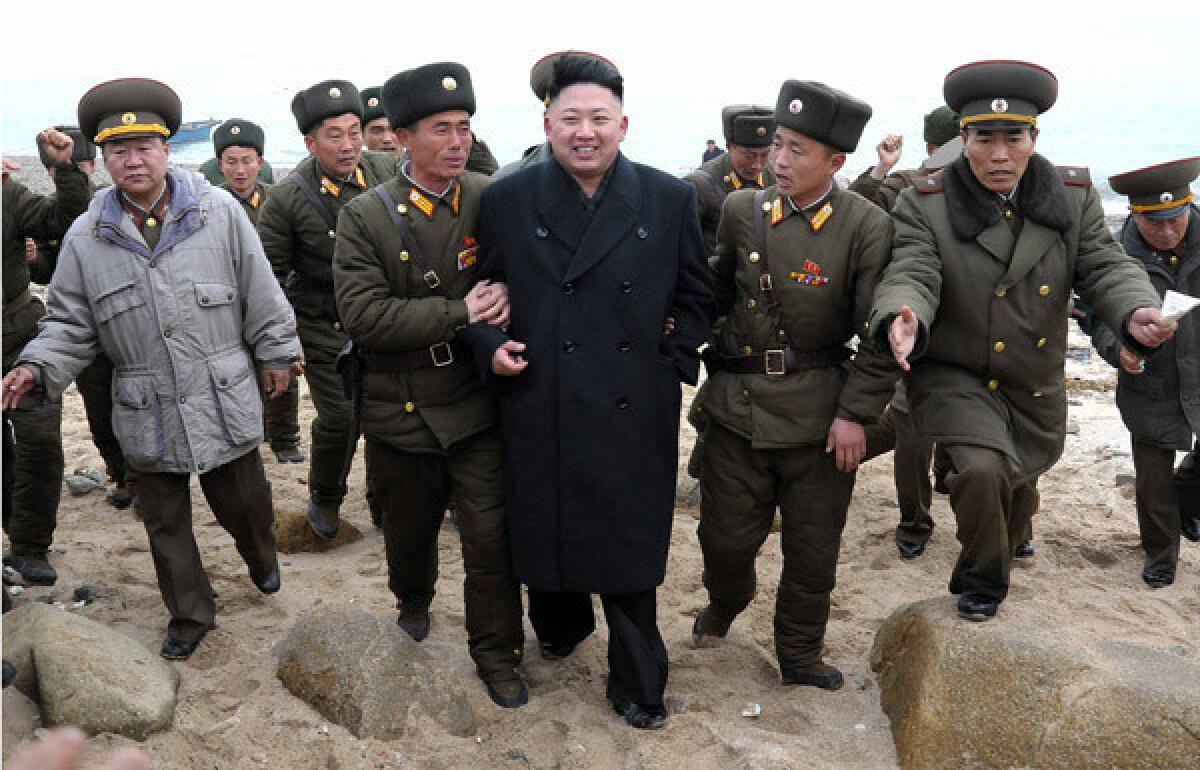North Korea vows to end nonaggression pacts with South Korea

- Share via
SEOUL -- North Korea has vowed to nullify nonaggression pacts with South Korea in response to the U.N. Security Council’s new tough sanctions and planned joint South Korea-U.S. military drills.
In addition to voiding the peace agreement, the Committee for Peaceful Reunification of Korea, the North’s agency in charge of dealing with cross-border affairs with the South, announced in a statement broadcast on state media Friday that it will sever a North-South hotline.
The state-run agency said North Korea “abrogates all agreements on nonaggression reached between the North and the South ... [and] also notifies the South side that it will immediately cut off the North-South hotline.”
The agency said the pact will be voided starting Monday, the same day South Korea-U.S. joint military drills are set to begin. Earlier this week, Pyongyang vowed to break the armistice agreement that ended the Korean War in 1953, and pledged a “preemptive nuclear strike” on the U.S. that would turn Washington into “a sea of fire.”
“Such threats seem to reflect the North’s desire to start a new phase. They are calling to scrap the old agreement and make new orders,” said Koh Yoo-hwan, North Korea studies professor at Dongguk University in Seoul. “And of course, they want to strengthen domestic unity under young leader Kim Jong Un.”
Although such rhetoric has been carried out by the bellicose state before, tension has grown unusually high on the Korean peninsula following the North’s rocket launch in December and its third nuclear test in February.
Early Thursday morning, Kim made a visit to an army unit near the border with South Korea, accompanied by key members of the regime. After inspecting the guard post overlooking two islands at the border region, Kim reportedly said the army is “fully ready to carry out an all-out war.”
In response to the North’s threat, the Obama administration said Thursday that the U.S. “is fully capable of defending against any North Korean ballistic missile attack.”
[Updated, 12:33 p.m. March 8: In a later statement, Pentagon spokesman George Little said Pyongyang would “achieve nothing through threats of provocations, which will only further isolate North Korea and undermine international efforts to ensure peace and stability in Northeast Asia.”
He cited a statement on Wednesday from Army Gen. James Thurman, leader of the United Nations Command, that “as a legal matter, no party to the armistice can unilaterally terminate or alter the terms of the Armistice Agreement,” as specified by the pact itself.]
South Korea’s unification ministry said officials are deeply regretful over the North’s reaction, adding that “the North should take full responsibility for anything that follows the agreement between the two Koreas.”
Pressure has been growing on the North Korean regime, with its closest ally, China, condemning the recent nuclear test and agreeing to the new U.N. sanctions.
Park Geun-hye, South Korea’s newly elected and first female president, said she will “strictly respond to North Korea’s provocations,” yet will pursue a “Korean peninsula trust process” if North Korea takes a peaceful route.
ALSO:
Bid to ban commercial trade in polar bears fails
Body of Hugo Chavez to remain on view under glass
Dancer denies ordering use of acid in attack on Bolshoi director
More to Read
Sign up for Essential California
The most important California stories and recommendations in your inbox every morning.
You may occasionally receive promotional content from the Los Angeles Times.










